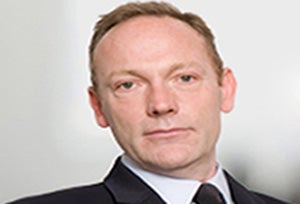
At a packed Harvard Law School event co-sponsored by the Human Rights Program and the Harvard National Security and Law Association, Ben Emmerson, United Nations Special Rapporteur on counter-terrorism and human rights, announced plans to launch an investigation into the use of drone attacks which have caused civilian deaths—including those carried out by the U.S.
“I will be launching an investigation unit within the special procedures of the [U.N.] Human Rights Council to inquire into individual drone attacks, and other forms of targeted killings conducted in counterterrorism operations, in which it has been alleged that civilian casualties have been inflicted,” Emmerson told the law school audience on Thursday, Oct. 25.
The unit will be established early next year in Geneva, with South African Christof Heyns, the U.N. Special Rapporteur on extrajudicial, summary or arbitrary executions, and a former Visiting Fellow with the Human Rights Program.
During his talk, Emmerson described the principal challenges currently facing his mandate, including recent developments on the accountability of public officials for involvement in the U.S. policies of targeted killing, torture, secret detention and rendition. He addressed the positions taken on some of these key issues by the candidates to the US presidential election, and gave an overview of the human rights issues currently heading the U.N.’s counter-terrorism agenda.
Said Mindy Roseman, Academic Director of the Human Rights Program: “Emmerson’s announcement is bold and courageous, and at the very least should renew interest in holding the U.S. government accountable for military actions, such as drone strikes, ostensibly undertaken to stop terrorism.”
The mandate of the Special Rapporteur on Counter-Terrorism and Human Rights operates under the auspices of the Office of the High Commissioner for Human Rights in Geneva. The Special Rapporteur is required to report every six months to the General Assembly and the Human Rights Council on thematic issues relevant to the mandate, to liaise with U.N. counter-terrorism bodies, including bodies established by the Security Council, and to provide technical and other advice to States through country visits and other forms of dialogue.
“The central priority of my mandate is to maintain a close watch on practices that undermine international standards in the prevention, investigation, prosecution and punishment of those accused of acts of terrorism, as well as the range of executive and even military measures taken at a national and international level to suppress terrorism,” Emmerson said. “However, I have made it clear since I took office that I intended to ensure that proportionate attention was also paid to the human rights of the victims of terrorist acts.”
At a Harvard Law School conference on terrorism and national security last year, White House adviser on counterterrorism John Brennan detailed the administration’s policy on combating terrorism.